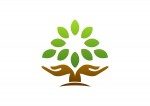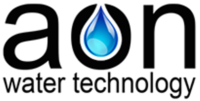Natural Cleaning with Essential Oils
Now is a good time to de-clutter your life and give your home and mind a fresh start! For some, cleaning is enjoyable; for others, it is a chore. No matter how you feel about it, cleaning is an unavoidable part of life. Having a clean environment is an important part of a healthy lifestyle.
Due to chemical residue, the pollution inside homes can be 2–5 times higher than outside! According to David Rosenstreich, M.D., the director of the division of allergy and immunology at New York’s Montefiore, “We live in a highly chemically-infused environment where people use tons of products. Just because it’s on the supermarket shelves doesn’t mean it’s safe.” A Home Cleaning Products Study on 6,000 women over a 20-year span was published in the American Journal of Respiratory and Critical Care Medicine. Cleaning at home as little as once a week over 20 years initiated significant lung damage. Professional cleaners experienced lung damage on par with smoking 20 cigarettes daily for 10–20 years. A Chinese study of nearly 2,300 students found that frequently using cleaning products in the home increased the likelihood of kids having rhinitis (an inflammation of the nose lining) by 29–97%. Using chemical cleaning sprays at home is also linked to triggering existing or creating new cases of asthma.
“Fragrance” is a catch-all term that can refer to over 3,000 different chemicals that include carcinogens, allergens, respiratory irritants, endocrine disruptors, neurotoxic chemicals, and environmental toxicants. These synthetic scents can cause allergies, respiratory distress, headaches, dizziness, nausea, immune system dysfunction, damage to airways, and brain fog. They can be found in body care and cosmetic products, air fresheners, cleaning agents, and laundry detergents. Instead of harsh chemicals, try natural cleaners like Castile soap, white vinegar, baking soda, salt, and essential oils. There are plenty of natural ingredient cleaning recipes on the Internet.
Pure Castile soap is a versatile, all-natural, non-toxic vegetable oil-based soap. It doesn’t lose potency over time and is available in liquid or bar form. It helps lift dirt, stains, and grease, and can be used as a shampoo, body wash, laundry detergent, dish washing soap, and general household cleaner.
White vinegar has been used as a disinfectant for thousands of years. Research indicates it has powerful antifungal and antibacterial properties. It can be used as a fabric softener and for cleaning grease/mineral deposits. It may be too harsh for wood because of its high acidity (try “distilled” white vinegar instead, which has lower acidity).
Baking soda (sodium bicarbonate) is another familiar household product. It can be used as a scrub, carpet cleaner, detergent booster, fabric softener, fruit/veg scrub, oven cleaner, grease remover, and deodorizer. It also can be used to extinguish minor grease fires in the kitchen.
Salt is a known effective scrubbing agent. It is useful for cleaning stains and greasy messes.
Essential oils (EOs) have natural cleansing properties and can be extremely effective cleaning agents because they are potent and powerful. EOs are extracts taken from plant parts and carefully bottled to preserve the properties of the oil. When choosing EOs to use for household cleaning, make sure the oils are pure, high-quality, come from natural sources, and do not contain any synthetic fillers or contaminants. High-quality EOs are safer to use around the entire family (including pets). Because high-quality EOs are so potent, just a few drops will provide serious cleaning power—often providing a more cost-effective solution than traditional synthetic cleaners.
EOs are very versatile—a single oil can be used for several different cleaning tasks. Each EO has a unique chemical profile from a combination of several different components, giving it a diverse set of possible benefits. For example, Lemon essential oil can be taken internally in drinking water as a refreshing detoxifier, diffused for concentration and energy, applied topically for congestion/mucus, and used on surfaces as a degreaser/disinfectant and a leather cleaner/conditioner.
Additional perks of cleaning with EOs are you will enjoy the aroma while you clean and realize the health benefits. Using EOs with uplifting, refreshing, and invigorating scents will make your home feel extra clean. Some of the best EOs for cleansing the air include: Arborvitae, Eucalyptus, Lavender, Lemon, Lime, Tea Tree, Thyme, and Wild Orange.
It is always wise to test the EO or your homemade cleaning solution on a small, inconspicuous area to see how they react with certain types of wood, fabric, granite, etc. This is especially important if you have unique types of furniture, carpet, wood, or other items you are concerned about ruining with cleaning agents.
It is important to be aware of the ingredients you use, even if they are considered safe. Take note of any reactions that a cleaning product may cause for anyone in your home (including pets). Always have a place in the home a pet can freely go to that does not have EO aroma. Pets enjoy EOs too, but their bodies are more sensitive and they can easily get overwhelmed. Never confine a pet in a room with EOs.
When storing your own EO cleaning agents, the chemistry of the oils will be best preserved in dark glass bottles or stainless steel containers kept in a cool, dry place away from UV rays and other types of light. EOs are corrosive to plastics, so solutions should not be stored long-term in plastic. Be sure to store homemade EO cleaning solutions in areas that children or pets cannot get to in order to keep them safe from improper exposure or ingestion.
CLEANING TIPS:
- Create a Checklist: A detailed to-do list for each area of the house will help organize your mind and tasks. Each checkmark provides a sense of accomplishment.
- Make it a Family Activity: Getting family involved can be a fun bonding experience. Make a list for each member based on their ability level and preference.
- Focus on One Area at a Time: Get more done, more effectively. Multitasking during cleaning can extend the time to get your chores done.
- Eliminate Distractions: Stay focused on each task. Ignore things that slow productivity. Facebook, TV, and other unrelated activities can wait until after you’re done.
- De-Clutter: Don’t be afraid to get rid of stuff! Make “sell,” “donate,” and “trash” piles. You will feel much better with the new space.
- Organize: An organized home has been proven to reduce stress levels and create a relaxing atmosphere. Establish an organizing system that works for you.
- Deep Clean: After you remove clutter and get organized, give your home a thorough scrubbing. Start with more advanced deep cleaning jobs, then move to daily/weekly tasks.
- Use Essential Oils: Certain essential oils contain powerful cleansing and purifying properties that make effective and safe cleaning agents. Common essential oils for natural cleaning:
- Wild Orange (antibacterial, antiseptic)
- Arborvitae (antibacterial, antifungal, antiviral)
- Basil (antibacterial, antifungal, antiviral)
- Bergamot (antibacterial, antifungal)
- Eucalyptus (antiviral, antibacterial, disinfectant)
- Lavender (antibacterial, antimicrobial)
- Lemon (antibacterial, disinfectant, degreaser, leather conditioner)
- Lime (antibacterial, antiviral, disinfectant)
- Oregano (antibacterial, antifungal, antiviral)
- Tea Tree (antibacterial, antifungal, antiviral)
These statements have not been evaluated by the Food and Drug Administration. The information in this article is not intended to diagnose, treat, cure, or prevent any disease.
QUESTION: How will you replace your traditional toxic cleaners with safe, natural products?







Toss out the bad.
Make the new
Start with using an essential oil in place of one of your cleaning products. Then gradually go to another one and get rid of the old style pollutants around your home. I like thieves oil for cleaning.
Get rid of the old pollutants and start using the essential oil in place of it. I like to try different new oils.
Replacing the toxic products one by one with EO products will make cleaning smell so fresh and even make cleaning fun!
I have used white vinegar for decades to clean/sanitize my C-PAP machine and I have also used baking soda as an effective cleaning/scrubbing agent. And we continue to find new uses for these home remedies!
I recently did this. I purchased a whole house water filtration system and threw out my old cleaners. I use natural cleaners with essential oils for everything now. Even my laundry detergent.
I am just as clean and smell just as nice but I am helping my body and the earth stay cleaner!